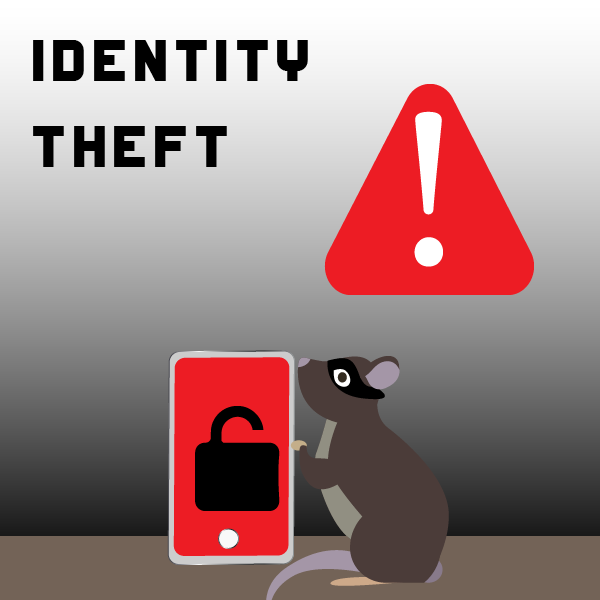Identity theft occurs when another person steals your personal information and uses it without your permission or knowledge. Fraud and identity theft affect hundreds of thousands, and sometimes millions, of people annually. Being a victim to such a crime can be traumatic, so taking necessary precautions will not only save you money, but also bring you peace of mind.
The stress from this ordeal can cost a person more than just their cash, it can bring with it an emotional toll that makes the experience feel unbearable and isolating. It is important to note, victims of this fairly modern crime are far from alone.
According to IdentityTheft.org there were 1.4 million cases of identity theft in the United States, and a whopping 5.7 million fraud cases. The average loss for victims of fraud is about $500, adding up to a loss of $10.2 billion total in fraud cases.
Identity theft isn’t just a far off concept, it affects people here in our Highline community. One staff member who chose to remain anonymous shared her experience about identity theft:
One afternoon after heading to a small store to shop for groceries, she was notified by her credit card company that someone purchased a $300 international phone card with her credit card.
When someone’s identity is stolen it can cause a loss of trust in those around them and a wariness they may never have exhibited before. It is an attack on the personal self that leaves no bruises, but there are repercussions to this profound lack of security one might experience.
If you are a victim of identity theft, know that it is not your fault. That some people that have experienced identity theft were able to recover from it and get their money back they lost. The problem is that not all people recover from identity theft quickly. It may take months or even years to get back on track.
After addressing immediate issues, like that of having fraudulent transactions dealt with, it’s important for victims to seek professional help if fear and anxiety become too overwhelming. Because no one deserves to have their identity stolen or hard earned money taken away from them.
Shawn Stewart, owner of Guiding Hands Credit Services said, “Identity theft is one the fastest growing crimes there is.” Stewart, gave some tips on how to protect yourself from identity theft:
- Enable two factor authentication – The two factor authentication is a system that requires two separate forms of identification. It requires your password and then a text message code you enter to access a website.
- Use a strong and unique password – Select a strong password that is not easy to guess. Remember don’t choose a password from the dictionary. The unique password can consist of a letter number and symbol that is not easy to guess.
- Beware of unsolicited emails, text messages that ask for your personal information – Beware when receiving an email message, a text message that looks strange and you don’t know who the sender is, do not click on the message, just delete the message.
- Regularly review your bank statement and credit card statements to check from unauthorized charges – Check your bank and credit card statement at the end of the month to make sure that no one has taken money from your account. There is an alert that a person can set up to send a text message or email to your account when money is going out of your account.
Taking precautions is one step in assuring that this doesn’t happen to you or your loved ones. Where prevention isn’t possible, you must be cognizant enough of your spending that any purchases out of the norm can be called in as soon as possible.
Identity theft is an alarming concept, it’s best to be cautious and look out for yourself and your loved ones.

